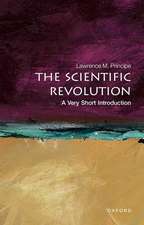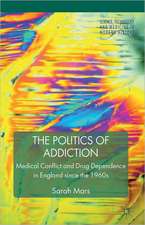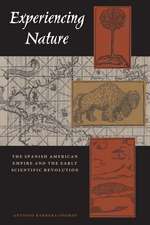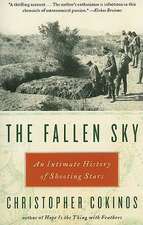The Philosophy of Historical Case Studies: Boston Studies in the Philosophy and History of Science, cartea 319
Editat de Tilman Sauer, Raphael Schollen Limba Engleză Hardback – 2 iun 2016
| Toate formatele și edițiile | Preț | Express |
|---|---|---|
| Paperback (1) | 697.32 lei 6-8 săpt. | |
| Springer International Publishing – 30 mai 2018 | 697.32 lei 6-8 săpt. | |
| Hardback (1) | 702.24 lei 6-8 săpt. | |
| Springer International Publishing – 2 iun 2016 | 702.24 lei 6-8 săpt. |
Din seria Boston Studies in the Philosophy and History of Science
- 18%
 Preț: 944.19 lei
Preț: 944.19 lei - 15%
 Preț: 646.75 lei
Preț: 646.75 lei - 15%
 Preț: 646.75 lei
Preț: 646.75 lei - 15%
 Preț: 699.28 lei
Preț: 699.28 lei - 18%
 Preț: 736.50 lei
Preț: 736.50 lei - 18%
 Preț: 706.87 lei
Preț: 706.87 lei - 15%
 Preț: 643.16 lei
Preț: 643.16 lei - 15%
 Preț: 650.69 lei
Preț: 650.69 lei - 15%
 Preț: 634.18 lei
Preț: 634.18 lei - 15%
 Preț: 642.68 lei
Preț: 642.68 lei -
 Preț: 391.40 lei
Preț: 391.40 lei -
 Preț: 383.33 lei
Preț: 383.33 lei - 18%
 Preț: 944.19 lei
Preț: 944.19 lei - 18%
 Preț: 955.56 lei
Preț: 955.56 lei - 15%
 Preț: 643.65 lei
Preț: 643.65 lei -
 Preț: 392.75 lei
Preț: 392.75 lei - 18%
 Preț: 1229.10 lei
Preț: 1229.10 lei - 18%
 Preț: 1238.23 lei
Preț: 1238.23 lei - 18%
 Preț: 951.29 lei
Preț: 951.29 lei - 18%
 Preț: 1223.25 lei
Preț: 1223.25 lei - 18%
 Preț: 1225.79 lei
Preț: 1225.79 lei - 18%
 Preț: 1226.42 lei
Preț: 1226.42 lei - 18%
 Preț: 1236.82 lei
Preț: 1236.82 lei - 15%
 Preț: 644.49 lei
Preț: 644.49 lei - 18%
 Preț: 1231.78 lei
Preț: 1231.78 lei - 15%
 Preț: 644.30 lei
Preț: 644.30 lei - 18%
 Preț: 957.62 lei
Preț: 957.62 lei - 18%
 Preț: 1222.49 lei
Preț: 1222.49 lei - 18%
 Preț: 947.50 lei
Preț: 947.50 lei - 18%
 Preț: 1833.95 lei
Preț: 1833.95 lei - 18%
 Preț: 1227.99 lei
Preț: 1227.99 lei - 18%
 Preț: 947.35 lei
Preț: 947.35 lei
Preț: 702.24 lei
Preț vechi: 826.16 lei
-15% Nou
Puncte Express: 1053
Preț estimativ în valută:
134.39€ • 139.51$ • 112.06£
134.39€ • 139.51$ • 112.06£
Carte tipărită la comandă
Livrare economică 22 martie-05 aprilie
Preluare comenzi: 021 569.72.76
Specificații
ISBN-13: 9783319302270
ISBN-10: 3319302272
Pagini: 296
Ilustrații: VIII, 296 p. 25 illus.
Dimensiuni: 155 x 235 x 23 mm
Greutate: 0.57 kg
Ediția:1st ed. 2016
Editura: Springer International Publishing
Colecția Springer
Seria Boston Studies in the Philosophy and History of Science
Locul publicării:Cham, Switzerland
ISBN-10: 3319302272
Pagini: 296
Ilustrații: VIII, 296 p. 25 illus.
Dimensiuni: 155 x 235 x 23 mm
Greutate: 0.57 kg
Ediția:1st ed. 2016
Editura: Springer International Publishing
Colecția Springer
Seria Boston Studies in the Philosophy and History of Science
Locul publicării:Cham, Switzerland
Cuprins
Introduction; Tilman Sauer and Raphel Scholl.- Chapter 1: Telling and Evaluating Philosophical Tales about the Scientific Past; Theodore Arabatzis.- Chapter 2: “Baseline” and “Snapshot”: Some Philosophical Reflections on an Approach to Historical Case Studies; Giora Hon.- Chapter 3: The Pluralism of Theory-Laden Narratives: Can Case Studies Decide Arguments in the Philosophy of Science? Katherina Kinzel.- Chapter 4: The Lotka-Volterra Model Revisited; Tarja Knuuttila and Andrea Loettgers.- Chapter 5: Underdetermination in 19th Century Electrodynamics: Developing a Philosophical Position Based on a Historical Case Study; Wolfgang Pietsch.- Chapter 6: Case Studies: Why the Philosopher’s Dilemma Misses the Point; Kärin Nickelsen.- Chapter 7: Multiple Perspectives on the Stern-Gerlach Experiment; Tilman Sauer.- Chapter 8: The Role of Case Studies in the New Experimentalism; Friedrich Steinle.- Chapter 9: Towards a Methodology for Integrated History and Philosophy of Science; Raphael Scholland Tim Räz.- Chapter 10: The Discovery of Elementary Particles: Why We Should Bother about the Ways of Telling the Story; Adrian Wüthrich.
Textul de pe ultima copertă
This volume collects reflections on the role of philosophy in case studies in the history of science. Case studies have played a prominent role in recent history and philosophy of science. They have been used to illustrate, question, explore, or explicate philosophical points of view. Even if not explicitly so, historical narratives are always guided by philosophical background assumptions. But what happens if different philosophies lead to different narratives of the same historical episodes? Can historical case studies decide between competing philosophical viewpoints? What are the criteria that a case study has to fulfill in order to be philosophically relevant? Bringing together leading practitioners in the fields of history and philosophy of the physical and the life sciences, this volume addresses this methodological problem and proposes ways of rendering explicit philosophical assumptions of historical work.
Caracteristici
Deals with a pressing issue in history and philosophy of science Discusses criteria for evaluating historical case studies Advances the field of integrated history and philosophy of science Includes supplementary material: sn.pub/extras
















